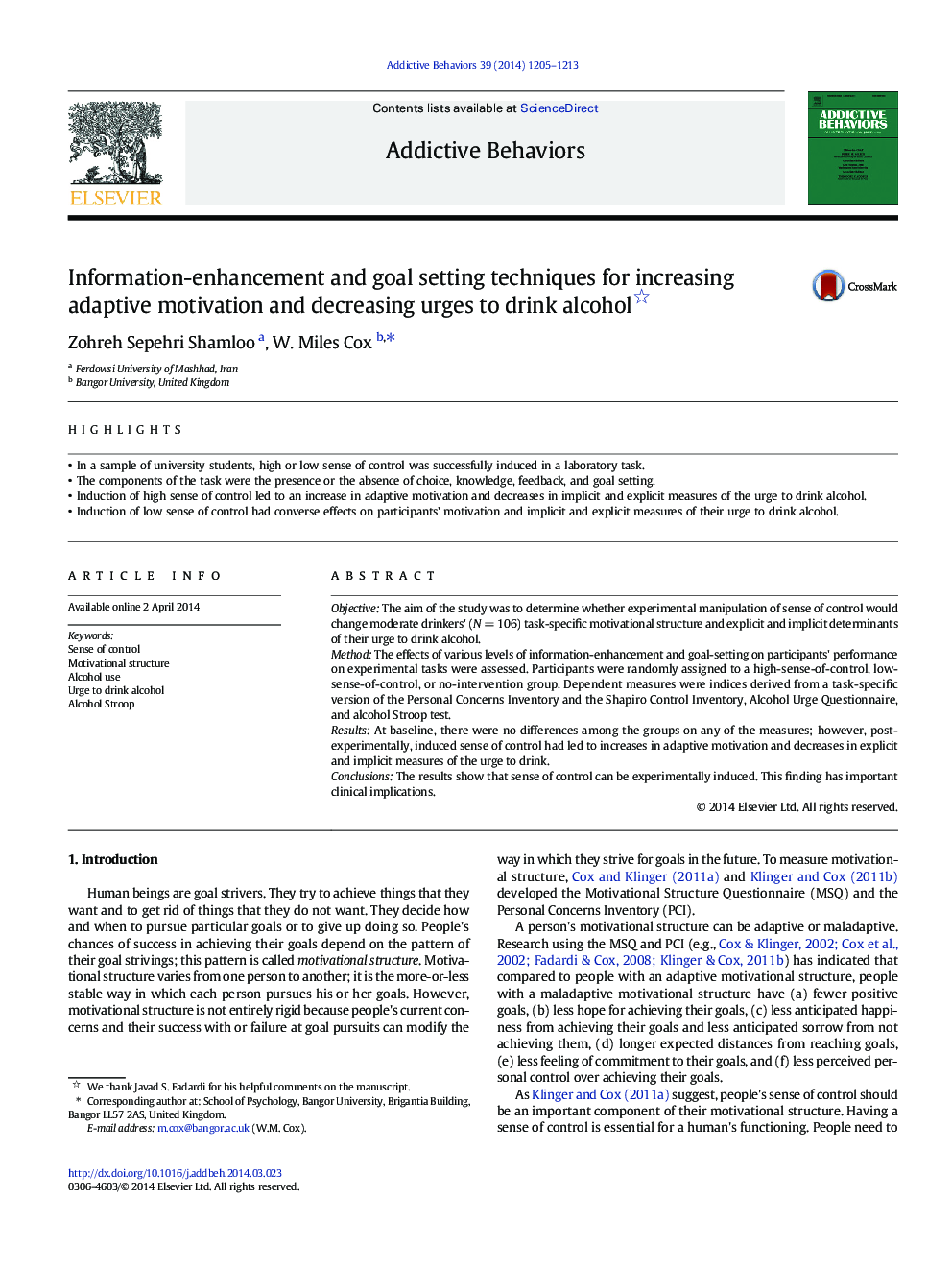| Article ID | Journal | Published Year | Pages | File Type |
|---|---|---|---|---|
| 898832 | Addictive Behaviors | 2014 | 9 Pages |
•In a sample of university students, high or low sense of control was successfully induced in a laboratory task.•The components of the task were the presence or the absence of choice, knowledge, feedback, and goal setting.•Induction of high sense of control led to an increase in adaptive motivation and decreases in implicit and explicit measures of the urge to drink alcohol.•Induction of low sense of control had converse effects on participants’ motivation and implicit and explicit measures of their urge to drink alcohol.
ObjectiveThe aim of the study was to determine whether experimental manipulation of sense of control would change moderate drinkers' (N = 106) task-specific motivational structure and explicit and implicit determinants of their urge to drink alcohol.MethodThe effects of various levels of information-enhancement and goal-setting on participants' performance on experimental tasks were assessed. Participants were randomly assigned to a high-sense-of-control, low-sense-of-control, or no-intervention group. Dependent measures were indices derived from a task-specific version of the Personal Concerns Inventory and the Shapiro Control Inventory, Alcohol Urge Questionnaire, and alcohol Stroop test.ResultsAt baseline, there were no differences among the groups on any of the measures; however, post-experimentally, induced sense of control had led to increases in adaptive motivation and decreases in explicit and implicit measures of the urge to drink.ConclusionsThe results show that sense of control can be experimentally induced. This finding has important clinical implications.
